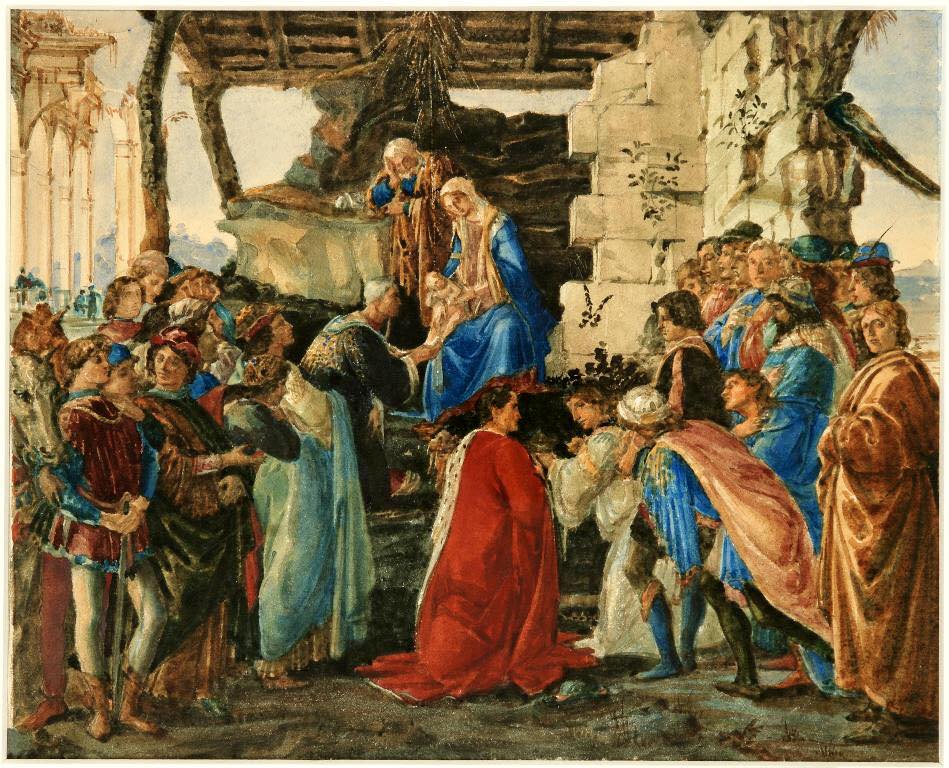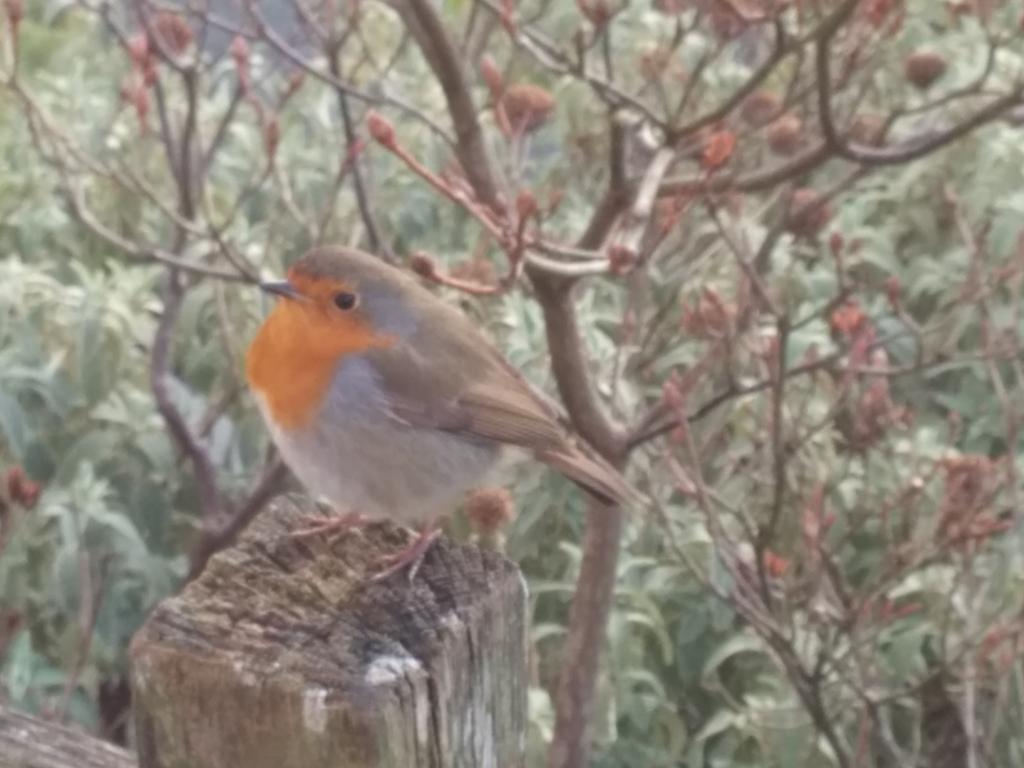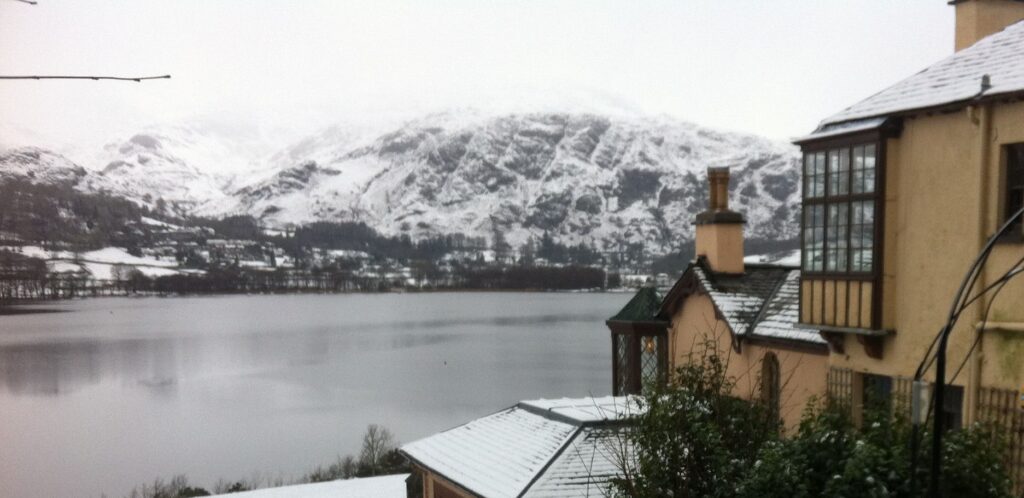As many of us around the globe find ourselves trying, for a second year running, to meet the challenge of Covid as we prepare for Christmas, let’s look back to a delightful episode in the life of John Ruskin.
A RUSKINIAN CHRISTMAS
To Dr Kay Walter,
Dedicated Teacher, True Ruskinian, and Dear Friend
Buried towards the back of volume 34 of the Library Edition of Ruskin’s Works is a fascinating account of a “sumptuous” Christmas Dinner given by Ruskin for the children of Coniston and the surrounding area (see pp. 632-634). Ruskin’s editors, Cook and Wedderburn, quote from Soulby’s Ulverston Advertiser (13 January 1881) and rely on this source alone. I have additionally consulted a range of other newspapers, principally the Lakes Herald (15 January 1881) which adds further colour and detail. The occasion presents Ruskin at his best: philanthropic, generous spirited, and kindly, drawing on his deep Christian faith to preach a social gospel in the most convivial of settings.
The dinner took place in the schoolroom at Coniston on what the newspaper reports call Old Christmas Day, that is to say, on the Feast of Epiphany, after the 12 Days of Christmas, on 6 January. According to the report in the Library Edition there were 315 children present, but all other newspapers—and the reports were widely syndicated—say 260.
“The event”, all the newspapers claimed, “was one of unusual interest to the parents, as well as to the children, making as it did, a new era in the character of our Christmas festivities.” The weather, we are told, was auspicious—more like early spring than mid-winter. A flag flew from the tower of St Andrew’s Church, signalling the coming festival, and “troops of the young expectants might be seen wending their way to the place of rendezvous” which had been converted into a “banquet hall of a very attractive kind”.
At noon, Ruskin arrived, accompanied by his cousin, Mrs Joan Severn (1846-1924), and her husband’s niece, Miss Martha Gale (1855-1926), and “forthwith the children were marshalled in under their respective heads, to the places assigned to them”. Proceedings opened with the singing of the hymn, “Great God! And wilt Thou condescend”, a few words of introduction were spoken by the Incumbent, Rev. Charles Chapman, then Moody and Sankey’s hymn, “Shall we gather at the river?”, was sung “in admirable time and with much feeling”.
Cook and Wedderburn do not say anything of the dinner itself, but details were widely reported in the press. “It was very ably and plentifully furnished by Mr [James] Dove, of the Crown Hotel”, the Lakes Herald tells us. It consisted of roast and boiled beef and mutton, turkey, chicken, and tongue, “with vegetables to match”; all of it, the report quickly adds, served hot. “And considering the number present, the dinner was as completely provided as one could well have wished.”
The spirit of co-operation was clearly evident. “Many were the friends who kindly lent a helping hand in ministering to the wants of those young people”, the Lakes Herald reported. “But for these helpers, the dinner, however beautifully provided, could not have been dispensed. All was admirably arranged and satisfactorily carried out.” Through the kind permission of Catherine Barratt Bousfield (1830-1884), Thomas Alexander Galloway, head gardener at her home Holy Wath, “ornamented the tables with shrubs and ferns”. Among others present were Ruskin’s young secretary, Laurence Hilliard (1855-1887); Mary Beever (1802-1884) of Thwaite House, the sister of Ruskin’s friend, Susanna Beever (1805-1893); Miss Fanny Tolmie (1846-1926), a native of Scotland who was the Miss Beevers’ neighbour residing at Thwaite Cottage; 26-year-old Dr John Kendall, the local medical officer and public vaccinator; the land agent Thomas Evenett (1823-1895) and his wife, Martha (1827-1881) of Tent Cottage; Mrs Mary Richardson (1823-1892), the widow of a local copper miner; and one Mrs Marshall, whose identity is unclear.
The event came to a close at three in the afternoon, and the children separated “well pleased with the excellent treat which they had had”.
RUSKIN’S ADDRESS
Before anyone tucked into dinner, Ruskin addressed the children. It repays close reading, and must be quoted in full. To make it easier to read on screen, I have inserted many paragraph breaks that are absent from the original reports. The numbers in square brackets refer to Cook and Wedderburn’s notes pointing readers to the Biblical texts Ruskin draws on. They are given here directly below Ruskin’s speech,
“I had been thinking, my dear children, what to say to you, and I felt it extremely difficult to shape my thoughts aright; but the remarks which have just been offered, and the hymn which you have so well sung, have removed the difficulty, and I feel it a pleasure to say a few words to you.
[It is] true, I wish to see children happy, and to be happy is to do what’s right and good. Christmas time, of all times, is most calculated to make young people happy, because of the great event celebrated at this gladsome season—when the infant Saviour was born, that He might make all people happy, and especially the little ones whom He so much loves.
But, to be happy, my dear young friends, you must try to make others happy, your parents, and those who have charge over you, by seeking to do what is right and good.
I was noticing, in the hymn you sang, the words, ‘Shall we gather at the river, where bright angels’ feet have trod?’ which seem to carry one on to the future instead of thinking of the present. Not only have angels trod this earth in old times, but they do tread it even now, for they are often about us, helping us in many ways; present at our tables, and also at our beds; and we ought to think of this, and rejoice that we have such heavenly companionship.
I was much interested this morning in reading the account of the angels visiting the shepherds of Bethlehem, and telling them about the infant Saviour born there. You know what shepherds are, and what are their duties. The children of our towns, many of them at least, have never seen a shepherd or a sheep, or beautiful green fields, or mountain scenery. But you are living in the midst of them; and you ought to be very happy and very kind one towards another.
It is a strange thing that shepherds were more honoured than the ‘wise men from the East’; [1] for these were simply guided by a star, and directed to make inquiry where Christ was to be born; but the shepherds were told by an angel the precise place where they were to find Him. [2] And He was born in Bethlehem.
You, perhaps, know that that means ‘the house of Bread’: [it is] singular thing that He, who is the Bread of Life, [3] should have the house of bread for His birthplace.
He wishes us to be happy here, as well as hereafter.
See how He looked after the wants of those around Him. He fed five thousand men with bread. He gave to his disciples bread, and fish, already cooked on the margin of the lake of Galilee. [4] You have your lake here, and fish swimming in the lake. So you can imagine the disciples feeding upon what He had supplied—and how thankful they must have been.
I am glad to give you this feast, to help you to be happy and to encourage you to be good.
Then, again, I see in that beautiful hymn we are taught to pray, ‘Jesus, here from sin deliver,’—that is what we want to be delivered from, our sins. You know Jesus came as ‘the Lamb of God, who taketh away the sin of the world’. [5] This was what John the Baptist said, and so we must look to the Saviour to deliver us from sin.
It is right we should be punished for the sins which we have done; but God loves us, and wishes to be kind to us, and to help us, that we may not wilfully sin. So try, my dear children, to be good and kind to those about you and over you.
Remember our Saviour said, ‘I stand at the door and knock; if any man (or child) open the door, I will come in to him, and sup with him, and he with Me’, [6] —that is, He will make us happy, if we but receive Him in our hearts, and will minister to our present as well as our future wants.
And now, children, I hope you will all enjoy yourselves.”.
[1] Matthew ii. 1–10.
[2] Luke ii. 8–16.
[3] John vi. 35.
[4] Matthew xiv.; John xxi.
[5] John i. 29.
[6] Revelation iii. 20.
It would be easy deliberately to ignore the Victorian context of Ruskin’s words and to scoff. It is true, of course, that Ruskin appeals to Christian faith to justify the discipline of good behaviour. He might be said to pose here as a modern-day Christ, feeding not the 5000, but the 315 or 260. But his sentiments are notably enlightened, focussing on what we would now call well-being in the here-and-now (not gratification deferred), and elevating the welfare and interests of children in an era of rote-learning where little ones were all too often expected to be neither seen nor heard. It is only at this point in British history that children were beginning to be recognised not as the property of their parents or parish as hitherto, but as individuals with rights of their own.
This was Ruskin in his early 60s. As a child he had stood up and preached, “People, be good!” He spent his whole life imploring us to be caring, kindly and considerate towards one another. If you re-read nothing but the words highlighted in red, please do re-read them. That there are still children in the world today—in Britain, indeed—who “have never seen a shepherd or a sheep, or beautiful green fields, or mountain scenery” should remind us how far we still have to go in the direction of progress. Humanity’s damaging dislocation from nature that Ruskin exposed and criticised so powerfully in his own time has got worse not better in the intervening years. Asked where lamb comes from some children, educational reports tell us, answer “the supermarket”. Some are being facetious, certainly, but others respond thus in all innocence and candour. It is no wonder they do.
Companions of Ruskin’s Guild of St George, which celebrates its 150th anniversary this year, might do well to consider carefully the etymology of the word “companion” and to think about what Ruskin says here of Christ and the Bread of Life, and to ponder what good we might do in the service of our brothers and sisters, parents, children, and friends.

Charles Fairfax Murray (1849-1919)
The Adoration of the Magi, after Botticelli (1873-76).
This painting was commissioned to help illustrate Ruskin’s lecture series Ariadne Florentina which focussed on the schools of art and design in Florence. Ruskin noted Botticelli’s “stupendous power” and praised him for being as “high in intellect and moral sentiment” as he was talented as an artist. Ruskin admired the design and colouring of Botticelli’s original painting and found Murray’s copy (which was not intended as a detailed study) to be “entirely admirable”.
DEDICATION
I dedicate this post to one of my own friends, Dr Kay Walter, one of the most dedicated teachers of Ruskin’s ideals and values on the globe, and based at the University of Arkansas at Monticello. I have been fortunate to correspond with several of the students with whom she has explored Ruskin’s ideas and tested Ruskin’s principles. One of them, Braden Taylor, has engaged closely with the many Ruskin events held online during the pandemic. Another student, Phebe Dawson, wrote to me as I was preparing this blog and, with her permission, I quote from her email, because she sums up perfectly the message Ruskin addressed to the children of Coniston on that Old Christmas Day in 1881. “He taught us about having compassion for everyone,” she writes, “to be kind to everyone we know, [and] he taught us to appreciate the beauty of nature.”
When Dr Walter’s students leave university and move on they may well feel as the students felt at Whitelands, the teacher-training college then based in Chelsea in which Ruskin took such a special interest, donating treasures to them and founding the May Queen Festival there. Ruskin wrote to them from Brantwood on 1 December 1885, and the words of this Christmas letter strike me as particularly valuable to students as they graduate from school and college and make their way in the world (particularly the words highlighted in red).
“My dear Students,—Fellow -students, let me say, and feel, in all that it is well to seek and sweet to know, I am most thankful for your letter to-day, not that I have ever been unthankful for any letter of the kind, but I had little hope a few weeks since of ever seeing merry Christmas with you again, and I have never looked forward to a Christmas so happy as now to this that is yet granted me.
You say you will never be all together again. Think, rather, that you will never be separated, but in all places and through all conditions of men extending the hopeful power of your happy sisterhood.
Ever your grateful and affectionate, J. RUSKIN.
[Qtd in Birmingham Mail (3 May 1886).]
THE ROBIN
Finally, if you send or receive any Christmas cards this year with a robin on it, consider reading the opening lecture of Ruskin’sf Love’s Meinie (1873-81). It is devoted to “The Robin”, and I’ll conclude by quoting Ruskin’s most memorable observation therein.
“[…] I should think a robin must be proud of his legs. Hundreds of birds have longer and more imposing ones—but for real neatness, finish, and precision of action, commend me to his fine little ankles, and fine little feet; this long stilted process, as you know, corresponding to our ankle-bone. Commend me, I say, to the robin for use of his ankles—he is, of all birds, the pre-eminent and characteristic Hopper; none other so light, so pert, or so swift.” [Ruskin, Works 25.33.]

A robin at Brantwood, photographed in February 2015
by Jonathan Lee (twitter: @jonnylwriter).
MERRY CHRISTMAS & HAPPY NEW YEAR
Thank you for reading my Ruskin Research Blog. I am particularly grateful to my friends Annie Creswick Dawson, Paul Dawson, and Sara Atwood for help, hints, and encouragement.
Whether or not you celebrate Christmas, I hope that your year comes to a relaxing and cheerful conclusion, and that the new year brings with it renewed hope and opportunity. Let’s heed Ruskin’s message, and follow his example, by striving to make the world a happier place in which to live.

The view from a snowy Brantwood, January 2013,
photographed by Stuart Eagles.
Please send feedback to contact@stuarteagles.co.uk